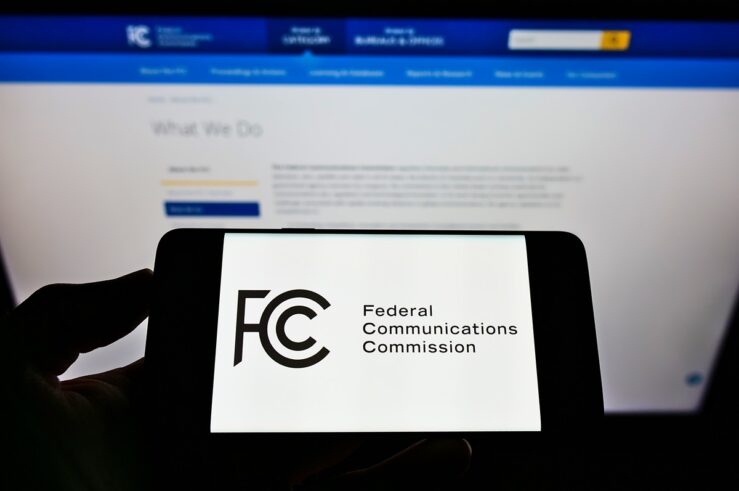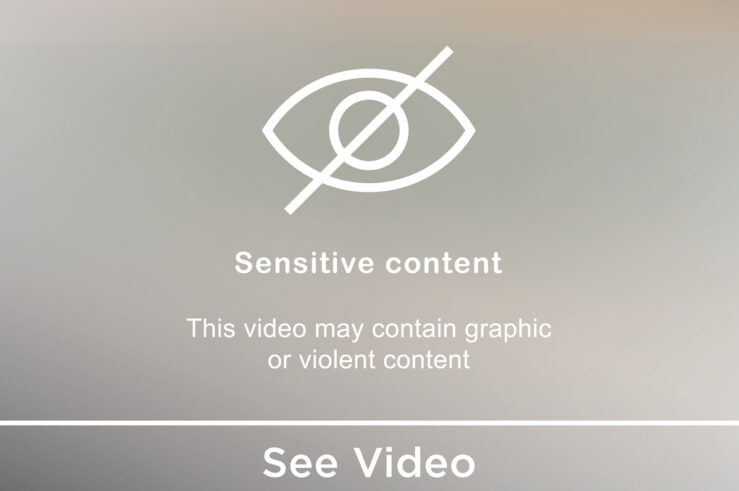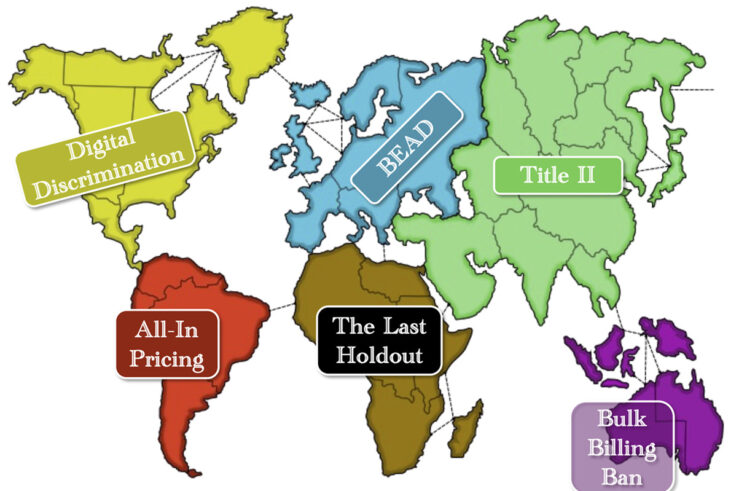Showing archive for: “Broadband”
The Year in Telecom: A Hootenanny Roundup
They say that when you’re raising kids, the days drag on, but the years fly by. The same could be said for this year in telecom policy. In 2024, the telecommunications industry faced a whirlwind of regulatory changes, legal challenges, and more than its fair share of fire drills without a fire. Let’s use this ... The Year in Telecom: A Hootenanny Roundup
What Project 2025 Can Tell Us About Brendan Carr’s FCC Priorities
My high-school-aged son came home from school the day after Election Day in distress. His history teacher spent the entire class listing the Parade of Horribles in Project 2025 and its dire consequences for the United States. I asked my son, “Project 2025 is more than 900 pages. Do you think your teacher read it?” ... What Project 2025 Can Tell Us About Brendan Carr’s FCC Priorities
The FCC’s Quixotic Quest to Regulate Broadband Data Caps
Internet use has soared since the COVID-19 pandemic. Between 2019 and 2022, average monthly data usage increased from 344 GB to 586 GB per month—a 70% increase. In 2019, only 16% of subscribers were on speed tiers of greater than 200 Mbps. By 2023, 74% had such speeds, and a third of subscribers had speeds ... The FCC’s Quixotic Quest to Regulate Broadband Data Caps
Why Technological Neutrality Is Key to BEAD’s Success
Congress intended the Infrastructure Investment and Jobs Act’s (IIJA) ambitious $42.5 billion Broadband Equity, Access, and Deployment (BEAD) program to bridge America’s digital divide by subsidizing infrastructure buildout to areas that are either unserved or underserved by broadband internet. With projects administered by the 50 states, five insular territories, and the District of Columbia, the ... Why Technological Neutrality Is Key to BEAD’s Success
ICLE and CEI Submit Amicus Brief Arguing the FCC’s Net Neutrality Order Is Unlawful
If you’ve been keeping up with the machinations of the Federal Communications Commission’s (FCC) latest attempt to regulate broadband under Title II of the Communications Act, you know that providers are challenging the rules in the 6th U.S. Circuit Court of Appeals. The court has put that case on the fast track. Earlier this week, ... ICLE and CEI Submit Amicus Brief Arguing the FCC’s Net Neutrality Order Is Unlawful
Will the Courts Allow the FCC to Execute One More Title II Flip Flop?
The U.S. Supreme Court’s recent decision in Loper Bright v. Raimondo may have added a new wrinkle to the decades-long fight over whether broadband internet-access services should be classified as “telecommunications services” under Title II of the Communications Act. The Federal Communications Commission (FCC) has flip-flopped multiple times over the years on this hotly debated ... Will the Courts Allow the FCC to Execute One More Title II Flip Flop?
How This Supreme Court Term Might Affect the FCC’s Digital-Discrimination Rule
The recently completed U.S. Supreme Court session appears to have upended the administrative state in some pretty fundamental ways. While Loper Bright’s overruling of Chevron attracted the most headlines and hand-wringing, Jarkesy will have far-reaching effects across both the executive and judicial branches. Even seemingly “small” matters such as Ohio v. EPA and Corner Post ... How This Supreme Court Term Might Affect the FCC’s Digital-Discrimination Rule
FCC’s Digital-Discrimination Rules: Bridging the Divide or a Bridge Too Far?
The Federal Communications Commission’s (FCC) recently enacted rules to prevent so-called “digital discrimination” in broadband access are facing a significant legal challenge in the 8th U.S. Circuit Court of Appeals. Earlier this week, the U.S. Justice Department and the FCC submitted their brief on the matter. Now that the parties have made their “opening arguments” ... FCC’s Digital-Discrimination Rules: Bridging the Divide or a Bridge Too Far?
ICLE/ITIF Amicus Brief Urges Court to Set Aside FCC’s Digital-Discrimination Rules
The Federal Communications Commission (FCC) recently adopted sweeping new rules designed to prevent so-called “digital discrimination” in the deployment, access, and adoption of broadband internet services. But an amicus brief filed by the International Center for Law & Economics (ICLE) and the Information Technology & Innovation Foundation (ITIF) with the 8th U.S. Circuit Court of ... ICLE/ITIF Amicus Brief Urges Court to Set Aside FCC’s Digital-Discrimination Rules
Net Neutrality and the Paradox of Private Censorship
With yet another net-neutrality order set to take effect (the link is to the draft version circulated before today’s Federal Communications Commission vote; the final version is expected to be published in a few weeks) and to impose common-carriage requirements on broadband internet-access service (BIAS) providers, it is worth considering how the question of whether ... Net Neutrality and the Paradox of Private Censorship
Clearing the Telecom Logjam: A Modest Proposal
In this “Age of the Administrative State,” federal agencies have incredible latitude to impose policies without much direction or input from Congress. President Barack Obama fully pulled off the mask in 2014, when he announced “[w]e are not just going to be waiting for legislation,” declaring “I’ve got a pen, and I’ve got a phone.” ... Clearing the Telecom Logjam: A Modest Proposal
It’s Risk, Jerry, The Game of Broadband Conquest
The big news in telecommunications policy last week wasn’t really news at all—the Federal Communications Commission (FCC) released its proposed rules to classify broadband internet under Title II of the Communications Act. Supporters frame the proposed rules as “net neutrality,” but those provisions—a ban on blocking, throttling, or engaging in paid or affiliated-prioritization arrangements—actually comprise ... It’s Risk, Jerry, The Game of Broadband Conquest
















